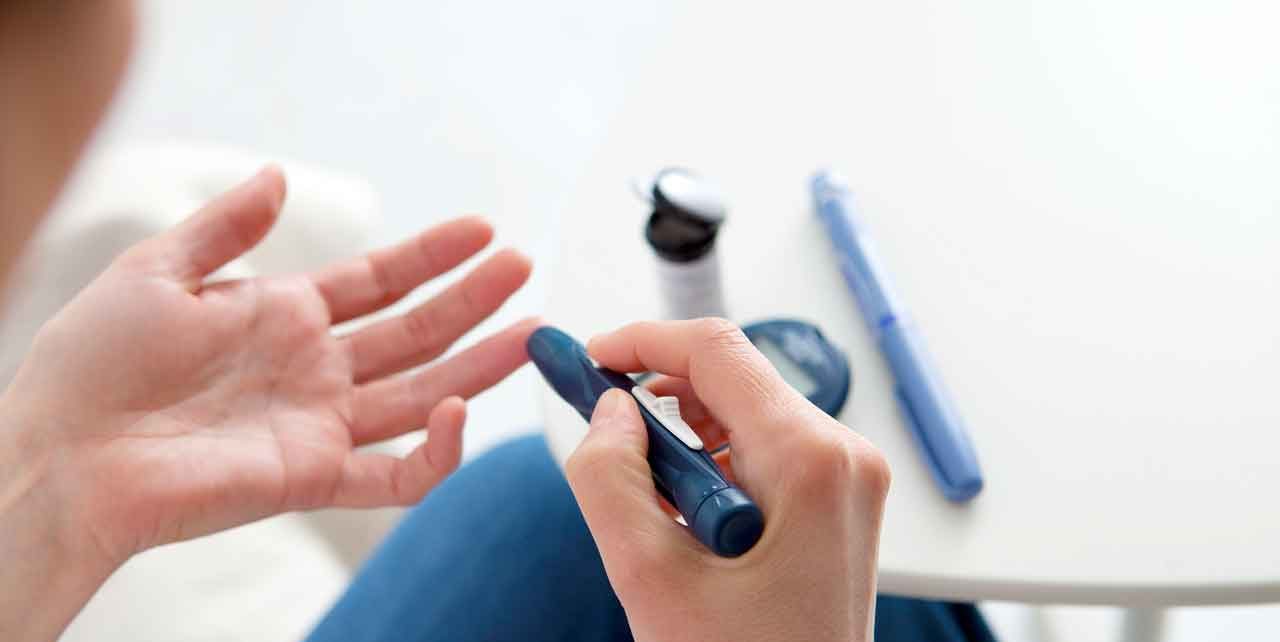How to Lower Blood Sugar Naturally

You can reverse prediabetes without medication, simply by changing your diet and adding physical activity to your lifestyle. Here's how to lower your blood sugar naturally.
According to a recent study, half of all Americans have either diabetes or prediabetes, a condition in which you already have elevated blood sugar and could develop diabetes.
But there are ways to lower your blood sugar, or glucose, naturally with certain food and lifestyles choices.
While normal blood sugar levels vary throughout the day, if you don’t have diabetes your level on awakening – or after fasting – should be under 100 milliliters of sugar per deciliter of blood, or ml/dl.
YOU MIGHT ALSO LIKE: Losing Weight Can Reverse Type 2 Diabetes
If you have diabetes your blood sugar level should be between 80 and 130 ml/dl after fasting and under 180 one to two hours after meals.
For prediabetes your blood sugar would be 100 to 125 ml/dl after fasting and higher than 140 ml/dl one to two hours after eating.
Another test, hemoglobin A1c, assesses blood sugar levels on average over three months. Normal would be less than 5.7 percent, prediabetes would be over 5.7 percent to 6.4 percent, and diabetes would be 6.5 percent or higher.
You can lower, or even reverse, your blood sugar levels, however.
“The best way to keep blood sugar levels down without medication is to eat less sugar. The less sugar you consume, the smaller the metabolic response will be — keeping your pancreas and insulin levels healthy,” writes Alwyn Wong, DC. “You can cut back on sugars by limiting your intake of processed foods, sauces, fruit juices, candy, and soda, and paying attention to nutrition labels.”
Other ways include eating foods with a low glycemic index, which assesses how fast a food makes your blood sugar rise. Low-glycemic foods include seafood, meat, eggs, oats, barley, beans, lentils, legumes, sweet potatoes, corn, yams, most fruits and non-starchy vegetables, cinnamon, and vinegar, according to Adda Bjarnadottir, MS.
Some experts also recommend unsweetened tea and a glass of red wine, as well as supplements that include chromium picolinate, green tea extract, and magnesium.
You also can lower your blood sugar by lowering your carbohydrate intake because your body breaks most carbs down into sugars – mostly glucose – rather quickly. Insulin then moves the sugars into the cells.
Watch your portion levels as well. That can lead to weight loss, which leads to lower blood sugar. Ways to do so include measuring and weighing portions, using smaller plates, avoiding all-you-can-eat restaurants, reading food labels and checking serving sizes, keeping a food journal, and eating slowly, writes Franziska Spritzler, RD, CDE. Another way to lower your blood glucose is to stay hydrated. An observational study found that those who drank more water had a lower risk of developing high blood sugar levels.
Other than food and water intake, you can lower your blood glucose by exercising regularly.
“Apart from administering insulin, the fastest way to lower your blood glucose is to engage in physical activity,” writes Tracey Neithercott. “Exercise results in an increased sensitivity to insulin. It causes your muscle cells to take up more glucose, leaving less of it to circulate in your bloodstream during and after the physical activity.”
If you’re sleep-deprived, you’re just adding to the factors that can raise blood sugar. People who don’t get enough rest tend to weigh more and risk being overweight. That can bring with it complications, including diabetes, cardiovascular disease. In general, aim for 7 to 8 hours of sleep each night. Your body functions better and helps keep blood sugar levels down.
Remember, you can reverse prediabetes with physical activity and a healthy, balanced diet. But up to 30 percent of people with prediabetes will develop full-blown type 2 diabetes within five years if they make no lifestyle changes, estimates the The Centers for Disease Control and Prevention.
YOU MIGHT ALSO LIKE: Bariatric Surgery Can Reverse Type 2 Diabetes
Updated:
February 28, 2020
Reviewed By:
Janet O’Dell, RN